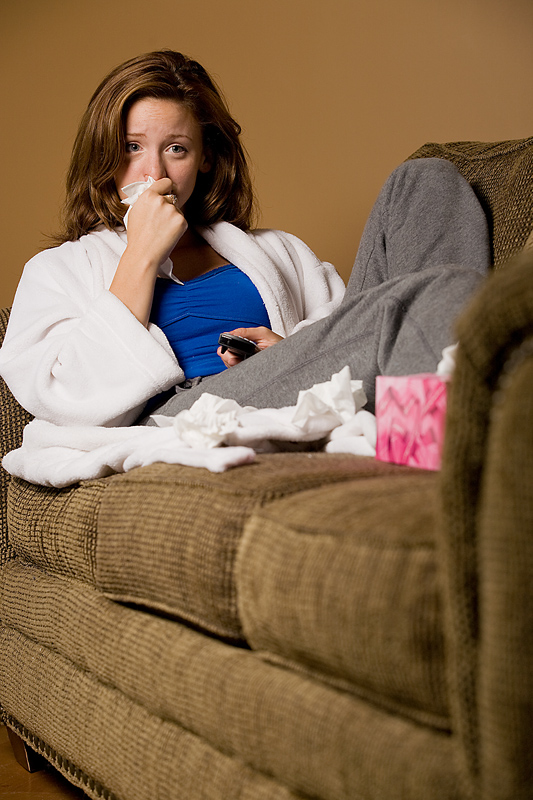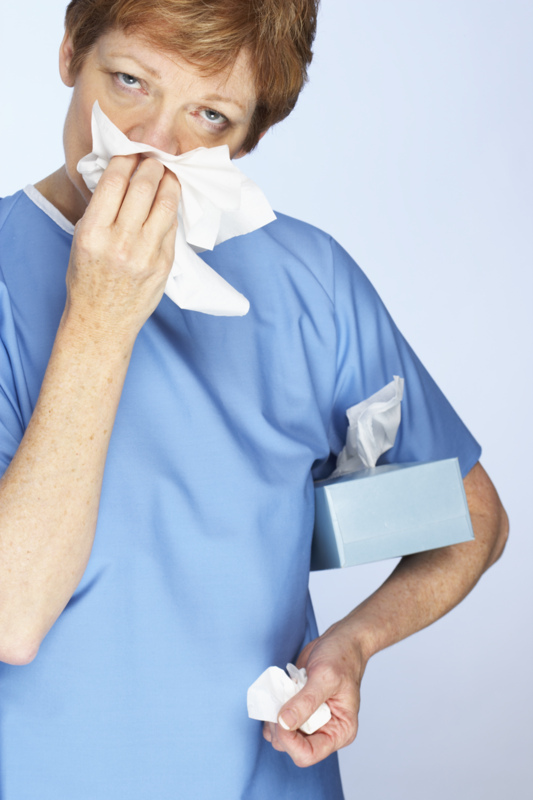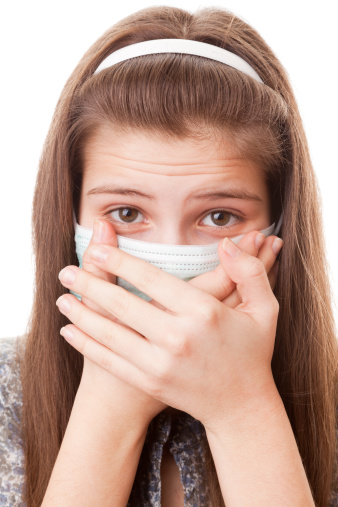Stay Informed
Popular Articles
- Hiatal Hernia: Hidden Cause of Chronic Illness
- Small Intestinal Bacterial Overgrowth (SIBO)
- Applied Lymphology: Unlocking the Secret to Pain Relief
- An Introduction to Constitutional Iridology
- The Low Down on Liver Detoxification
- An Energetic and Emotional Approach to Cancer
- Fat Facts
- Marrow in the Bones
- Blood Type and Nutrition
- Cardiac Herbs: Beyond Hawthorn
Quick Search
The School of Modern Herbal Medicine




Asking the Wrong Question Won't Get You the Right Answer
- 2/16/2014
- Categorized in: General Health
 Questions are very important. In fact, I believe that knowing how to frame a good question is more important than knowing a lot of answers. That’s because I firmly believe in the A-S-K principle—”Ask and you shall receive, Seek and you shall find, Knock and it shall be opened unto you.” In other words, whenever we have a burning question in our minds, we will always be led to find answers.
Questions are very important. In fact, I believe that knowing how to frame a good question is more important than knowing a lot of answers. That’s because I firmly believe in the A-S-K principle—”Ask and you shall receive, Seek and you shall find, Knock and it shall be opened unto you.” In other words, whenever we have a burning question in our minds, we will always be led to find answers.
The problem is that most people don’t ask the right questions. For instance, if what I’ve said is true, then why hasn’t modern science, with all its searching, found the answer to the common cold and flu? This question naturally extends to cancer, heart disease, diabetes and other diseases, since a lot of people are still asking, “How do I cure X disease?” and have yet to find answers.
Ironically, modern medicine has found the answers to the questions they are asking. Unfortunately, they’re asking the wrong questions. Let me explain. The questions we ask ourselves generally come from the context of our own understanding. By context I mean that we have certain preconceived ideas about the way things are. These ideas come from socialization. Within any social group, whether it be family, church or country, there are certain beliefs that are accepted as true without question.
As children, we may have questioned some of these beliefs, but we quickly learned that questioning these beliefs evoked social disapproval or even punishment, so we chose to accept these assumptions as truth.
All reasoning originates from a premise. And reasoning can take us no further than the parameters defined by that premise. If this seems a little confusing, be patient. I’ll give you some concrete examples in a moment that will help you see what I’m talking about.
First of all, let me give you an analogy to help explain the idea of context or premise. Think of knowledge as water and your head as the reservoir or "container" that holds the water. In effect, your container is your preconceived ideas about the nature of reality. These preconceived ideas are the context in which your knowledge is placed. They have been called many things, including transparent beliefs, assumptions, postulates, prejudices and paradigms. Whatever you call them, they form the framework within which you ask questions and reason.
Most people would never think to question their own context. In fact, most people find it confusing or even distressing to do so. The downside of this is that their ability to ask questions and reason is limited to the boundaries they've constructed inside their heads. However, all the great discoveries in the world come when people question not only the content of their knowledge, but also the context. That is, they break free from the confines of their culturally accepted thought patterns and establish a new container or paradigm.
Cultural Beliefs About Colds and Flu
 In talking about colds and flu, for example, let me show you some of the culturally held beliefs that are deeply ingrained in the majority of people in modern society. These widely held “facts” control the questions people are asking about curing colds and flu.
In talking about colds and flu, for example, let me show you some of the culturally held beliefs that are deeply ingrained in the majority of people in modern society. These widely held “facts” control the questions people are asking about curing colds and flu.
- Colds and flu are caused by germs called viruses.
- You “catch’ a cold or flu when you are exposed to these germs.
- To prevent the spread of colds and flu you have to kill the germs that cause them.
- To get rid of the cold or flu, you have to kill the germs inside your body.
- Cold and flu germs cause us to get symptoms like a runny nose, congestion, fever, aches, diarrhea, nausea, fatigue and chills. Curing the disease would eliminate these symptoms.
If we accept these assumptions as true, then all the questions we would ask about “curing” colds and flu would be asked within the context of these parameters. We would ask questions such as, “How do we kill germs more effectively?” And, we would find answers that would involve ways of killing germs more effectively.
But, what would happen if one or more of our basic assumptions was incorrect? (There, you see, I just asked the first question toward expanding or redefining the context or paradigm.)
Are Colds and Flu Caused by Viruses?
Let’s proceed by questioning the first assumption, “Colds and flu are caused by germs called viruses.” Is this really true?
Ask just about anyone “Who discovered germs?” and they will answer Louis Pasteur, the originator of the “germs cause disease” hypothesis. Well, they would be wrong because Pasteur didn’t discover germs. A contemporary of his, Antoine Beauchamp, was the real discoverer of microbes. Pasteur actually plagiarized Beauchamp’s research and claimed it as his own.
Furthermore, Beauchamp had a different theory about the relationship of germs to disease. His theory was that germs inhabited diseased tissue. In other words, the tissue became weakened, whereupon the germs were able to move in. This is called the Biological Terrain theory of disease. It’s the idea that germs are not the primary cause of disease—weakened tissue is.
So, the “germ theory” is only that, a theory. The biological terrain model is another theory. Which one do you believe? That’s important because your belief will form a context that shapes the questions you ask.
For example, if Pasteur was wrong and Beauchamp was right, then assumptions #2 through #4 above are automatically invalidated because they constitute “reasoning” within the context of the germ theory. If germs don’t cause disease, then you couldn’t “catch” a cold or flu by being exposed to germs—and killing germs wouldn’t prevent the spread of colds and flu. Also, trying to kill the germs after you got infected would also be an ineffective approach.
Why I Believe the Germ Theory is Wrong
I personally reject the germ theory and believe in the biological terrain theory of disease. Although I talk about viruses and infection and all that stuff at times, it’s only a way of communicating with people who believe that paradigm. I really don’t believe that any yeast, bacteria, virus or parasite is the cause of any disease. They may be involved in a disease process, but they are not the cause.
Here’s why I believe the biological terrain theory.
First, there are several noted researchers who accept this theory. For example, a fellow researcher and contemporary of Pasteur who believed in the germ theory was Rudolf Virchow. According to Henry Bieler, M.D., author of Food is Your Best Medicine, Virchow stated on his deathbed, “If I could live my life over again, I would devote it to proving that germs seek their natural habitat—diseased tissue—rather than being the cause of disease; e.g. just as mosquitoes seek stagnant water, but do not cause the water to become stagnant.”
Other authors have claimed that Pasteur himself made a similar statement at the end of his life, saying that he was wrong and Beauchamp was right. If this is true, then Pasteur rejected his own theory.
A second and very obvious reason I believe the germ theory is incorrect is that not everyone gets sick when exposed to germs. As a personal example, I can remember several times when my wife and kids were all sick. During these times I’d be taking care of everyone else, nursing them back to health, losing sleep, etc., but I didn’t get sick. That’s because I was taking good care of my own health. Of course, because I didn’t believe I would “catch” the disease from my family, I wasn’t afraid to take care of them, either.
A third reason, also personal, is that I was married for 14 years to a woman who hated housework. At times, I was too busy with work to keep up with the cleaning, so our home got down right unsanitary—dirty dishes piled up in the kitchen, dirty bathrooms, dirty floors, etc.
In spite of this less than sanitary environment, however, my kids got sick less often than kids living in cleaner homes and they recovered faster when they did get sick. If being exposed to “germs” is the reason we get sick, then my kids should have been sicker than any other kids in the neighborhood—but they weren’t.
I’m not suggesting we shouldn’t clean our homes. In fact, this is one of several reasons why I’m single now, but what I am saying is that our obsession with disinfectants, antiseptics, antibiotics and other “germ-killing” strategies is misplaced. Trying to sanitize our living environment will not prevent us from becoming ill.
Busting Another Assumption
 There are a lot of natural healers who agree with the biological terrain concept of disease. However, I mentioned a fifth assumption, which is that the runny nose, fever, coughing, vomiting, diarrhea, skin eruptions (as in chicken pox or measles), etc. are caused by the disease. The day I began to question this assumption and discovered another way to look at the situation was the day I started being able to find effective remedies for colds and flu.
There are a lot of natural healers who agree with the biological terrain concept of disease. However, I mentioned a fifth assumption, which is that the runny nose, fever, coughing, vomiting, diarrhea, skin eruptions (as in chicken pox or measles), etc. are caused by the disease. The day I began to question this assumption and discovered another way to look at the situation was the day I started being able to find effective remedies for colds and flu.
This understanding came while reading Samuel Thomson’s New Guide to Health. Thomson said that he considered the learned doctors to be wrong in considering fever a disease or an enemy. Heat, he maintained, was life, and therefore, fever was a function of the body fighting the disease, not a function of the disease itself. He said that bodies get cold when they die, so heat was an expression of the life process, not the disease process that leads to death.
When I read this another question came to mind; “Do dead bodies cough, get runny noses, break out in rashes, throw up, etc.?” Since they don’t, all of these symptoms must be created by the process of life in the body. In other words, they are signs of the body’s efforts to heal itself, not part of the sickness.
This was a radical thought for me, and over time it developed into the “furnace analogy” we use in many of our courses. The bottom line is this; if this assumption is correct, then anything we do to “relieve symptoms” is actually suppressing the life process in the body and interfering with healing. What we want to do is support the life process instead of fighting it.
This concept totally changes the way we select remedies. For instance, a lot of people use Goldenseal/Echinacea for colds. The use of these herbs for colds is born out of a modern “scientific” understanding of these herbs and a belief in the germ theory. Traditionally, these herbs would not have been used in this manner, and I don’t find them very effective for colds, either (at least not in the early stages).
As another example, let’s look at that drippy, runny nose. What is actually happening? The body is trying to flush an irritant, but because most people think the runny nose IS the disease, the question in their mind is, “How can I stop this runny nose?” Again, their choice of remedies will be based on achieving that objective.
However, when one shifts perspective and sees the runny nose as part of the CURE for the cold, everything changes. Doing anything, natural or otherwise, to try to stop the runny nose is actually interfering with the cure. This is why modern medicine can’t cure the cold. Their efforts work against the body, not with the body.
In my experience, the best remedies for the drippy, runny nose stage of the cold are pungent herbs. Hot, spicy foods like capsicum, ginger, horseradish and mustard will actually make a healthy person’s nose run. So, when I take these herbs when my sinuses are running, it accelerates the body's efforts to cure the cold and I recover more quickly.
The Health Hazards of Being Germophobic
 Many Americans have become germophobic. They’re obsessed with killing germs. They worry about catching disease, so they're always disinfecting their hands and their homes, thinking that such efforts will keep them from getting sick. But, think about hospitals for a moment. No one works harder to maintain a germ-free environment than hospitals, yet studies show that you are more likely to get an infection in the hospital than anywhere else.
Many Americans have become germophobic. They’re obsessed with killing germs. They worry about catching disease, so they're always disinfecting their hands and their homes, thinking that such efforts will keep them from getting sick. But, think about hospitals for a moment. No one works harder to maintain a germ-free environment than hospitals, yet studies show that you are more likely to get an infection in the hospital than anywhere else.
One of the reasons for this is that disinfectants kill “friendly” microbes as well as the so-called “disease” germs. In the natural world, there are numerous kinds of microorganisms living side by side. These microbes keep each other in check through a natural ecological balance. Most of us are aware of the problem that antibiotics create by killing friendly flora in the intestines. By upsetting the natural balance of microbes, people get an overgrowth of yeast and other microbes that weaken the immune system. But, the same thing happens in our environment with chemical disinfectants. We’re upsetting the ecological balance. This also happens on the surface of the skin.
You will NEVER kill all the microbes in any environment, no matter how much you disinfect things. Instead, you’ll kill the microbes that are the weakest, and the strongest ones will survive. So, let’s say you kill 99% of the microbes and the 1% that survive are the ones most resistant to the antibiotic or disinfectant. As you do this again and again, pretty soon you’ve genetically selected and bred super microbes that are antibiotic and disinfectant resistant. Where are these super bugs most likely to be found? In hospitals, of course!
These problems are well-documented, but I want to take it one step further. Are there really “good” and “bad” bacteria? You see, I have this sort of naive belief that God made everything for a good purpose. For example, flies play an important role in nature—they are scavengers who eat garbage and recycle it in nature. They may be annoying, but without them, the world would soon be covered in filth.
Microbes also play important roles in nature. Some make minerals bioavailable to plants, while others take dead matter, break it down and recycle it. All microbes have a purpose! The so-called disease germs are scavengers, like flies, which feed off dead tissue. If there's no decaying tissue, there's no disease germs.
The obsession with disinfectants and antibiotics has another side effect. We start with tissue that became weakened through toxicity or malnutrition. A sort of internal swamp or garbage pile was created. Scavenger microbes, the kind that feed on dead and decaying material, settle into the area because it’s a host environment for them.
The body tries to flush out both the diseased tissue, microbes and microbial toxins through an immune response that creates symptoms like fever, runny nose, coughing, etc. We take toxic drugs to suppress these efforts, thus preventing the body from eliminating the problem. We then kill the scavenger microbes with antibiotics and antiseptics that act as chemical poisons. These further weaken our tissues, creating more breeding ground for scavenger microbes, and the cycle goes on an on. Acute disease develops into chronic disease as the body becomes more and more toxic, and the tissues become weaker and weaker.
I’ve been through this cycle, having grown up with chronic sinus problems and a tendency to “catch” every cold that came around. I was treated with antibiotics, antihistamines, and all the other “miracle drugs” of modern medicine. The result was that I seemed to get weaker and weaker. I’d get better temporarily, then the next “bug” I’d catch would be worse than the one before and require stronger medication.
Asking the Right Questions
 It took a change of thinking for me to get well. I came to realize that it wasn’t about treating disease at all. It’s about building health. The amazing thing is that the body is designed to heal itself. However, it needs some proper tools to work with, such as positive mental and emotional attitudes, good nutrition, deep breathing, quality rest and exercise, and an avoidance of toxic substances that interfere with the body's efforts.
It took a change of thinking for me to get well. I came to realize that it wasn’t about treating disease at all. It’s about building health. The amazing thing is that the body is designed to heal itself. However, it needs some proper tools to work with, such as positive mental and emotional attitudes, good nutrition, deep breathing, quality rest and exercise, and an avoidance of toxic substances that interfere with the body's efforts.
In other words, I had to change the question I was asking from “How do I cure X?” to “How do I become healthy?” As Samuel Thomson stated, “That same thing which will cure disease will prevent it.” This is the great secret that most people are missing. It isn’t about curing anything—it’s about building health.
Perhaps you’ve seen the DVD, The Secret. I’ve been familiar with many of the principles in this program for decades. Although I think The Secret misses a few important points about success, I do believe positive or negative thinking plays a big role in our lives.
The “secret” says that we attract what we think about. I say that what we focus our attention on tends to magnify in our lives. Either way, when you’re asking the question “How do I cure X disease?” what are you thinking about? Disease! As I’ve already explained, you can’t cure a disease. The symptoms you’re experiencing are the result of your body struggling to maintain your life in spite of your poor diet, sedentary lifestyle, lack of sleep, stress, exposure to toxins and negative attitudes. The more you mess with trying to “fix” or “cure” these symptoms, the sicker you will get.
Start by changing the question. For example, ask, “What can I do to be healthier? To have more energy? To feel great?” Now you’ll get the right answer. How do we get healthier, have more energy, feel good and become vibrantly alive? The answer: get the chemicals out of your body and out of your life. Eat wholesome, natural foods, heal your unresolved mental and emotional issues, and so forth. In short, if you focus on taking care of your health, your body will heal and become resistant to disease. It won’t matter what the “name” of your disease is, whether it is a cold or cancer, as the principles of good health remain the same no matter what “disease” you have.
The funny thing is, after every class in which I try to teach people the principles of health, someone invariably comes up afterward and asks, “How do I cure X?” Do yourself a favor. Stop asking this question and start asking “How can I be healthier?” You’ll get a lot better answers if you do.
